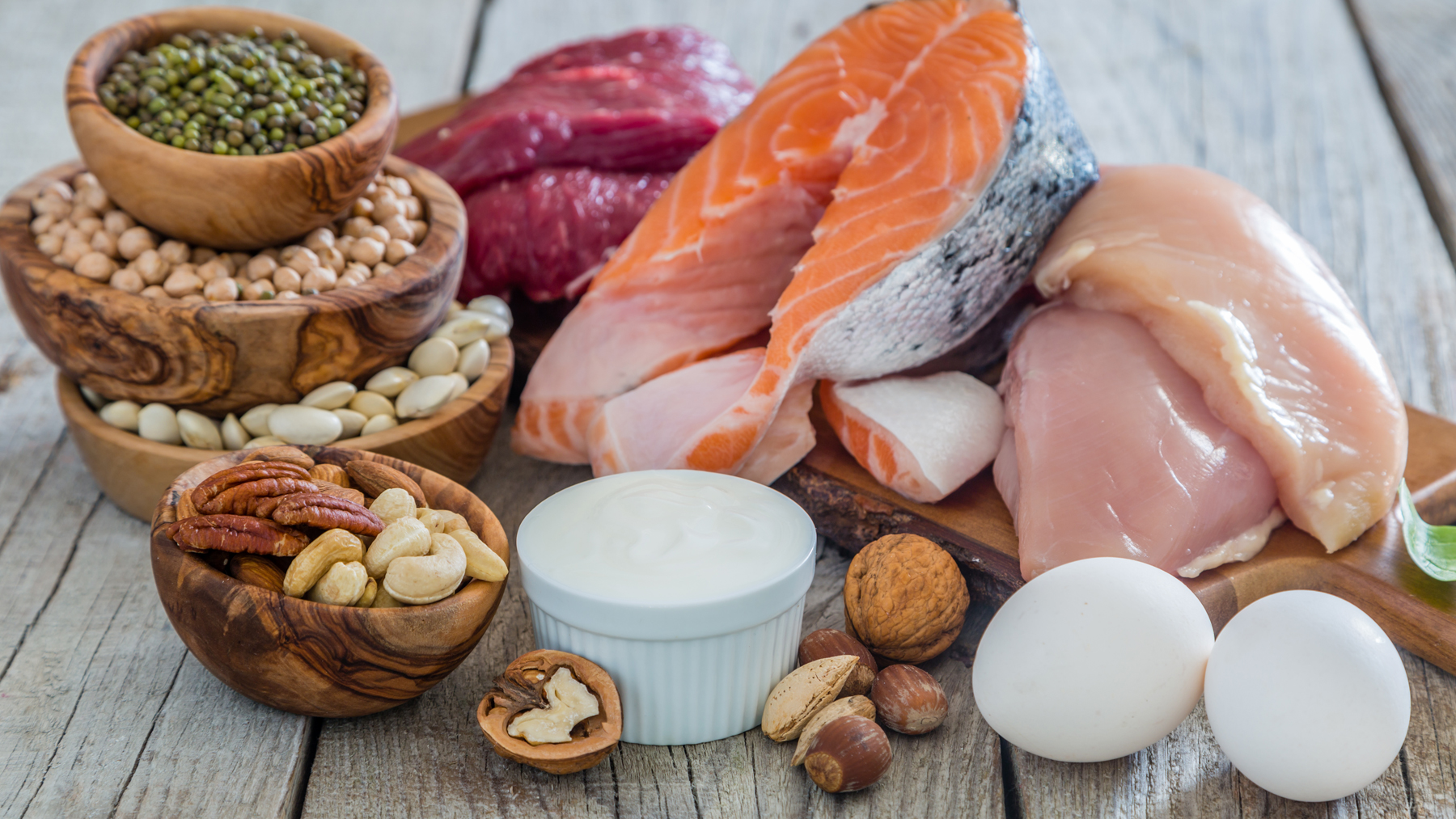Does protein give you energy?
Does protein give you energy? Here’s what the experts have to say


Does protein give you energy? This is a very good question since people typically discuss the benefits protein has on repairing and building muscle, but there is less said about whether or not it’s actually a good source of energy.
A high-protein diet is recommended for many reasons such as helping with weight loss and enhancing muscle growth and this is why so many people add protein supplements to their diets such as the best protein powders for women. But perhaps you are sick of hitting a lull midday and want to know if adding more protein to your diet can combat this or maybe you’re on the hunt for the perfect energizing, pre-workout snack.
To make things easier for your body when it comes to feeling more energetic, you are going to want to prioritize carbs. Out of the three macronutrients - carbohydrates, fats, and proteins - carbohydrates supply a quicker source of energy than the other two, research in The National Center for Biotechnology Information shows this. Protein can be used for energy, “But only in the absence of carbohydrates and it is not a very efficient process, so the body doesn’t like to do it,” Rob Hobson, Registered Nutritionist at Healthspan Elite told Fit&Well.
This doesn’t mean protein is useless for giving us energy, it can indeed be used as a good source of energy. To better understand how protein can provide give you energy, we’ve spoken to the experts.
How does protein give you energy?
David Stache who is a nutritionist at the protein supplement brand, Warrior, breaks down just how the body can use protein as a source of energy.
“Protein consists of amino acids which synthesize new proteins in the body that build and repair your bones, skin, and muscles. The nitrogen component of amino acids distinguishes them from glucose (the body’s primary energy source). Amino acids from protein take longer to digest, due to removing the nitrogen element,” noted Stache.
Stache did agree with Hobson that this isn’t the main purpose of protein. He explained that protein provides four calories per gram, meanwhile fat provides nine calories per gram. So when your body is low on fuel, it will receive glucose from carbohydrates first, then fatty acids. This is because protein isn’t used for energy if you gain sufficient calories from carbs.
Start your week with achievable workout ideas, health tips and wellbeing advice in your inbox.
We also answer other popular protein-related questions on Fit&Well such as how much protein do I need? This of course varies for men and women and can depend on how often you exercise and to what intensity.
What foods have protein?
It’s a common misconception that protein is only found in animal-based products such as meat, fish, and eggs. Whilst meat, seafood, and certain dairy products, are great sources of protein - take turkey, for example, Nutrition Data shows that a three-ounce (28g) serving of turkey can provide 23 grams of protein - but we can also gain protein from a wide selection of other foods.
Nuts, seeds, beans, and pulses are all excellent sources of protein and are exceptionally useful for anyone following a vegan or meat-free diet. According to NutritionData one ounce of pumpkin seeds holds 7 grams of protein. Similarly, one cup of edamame contains 17 grams of protein. Stache said, “The options are endless when it comes to consuming enough protein, and your daily intake should most definitely not be confined by your lifestyle and choice of diet!”.
You may be reading this and wondering; are you eating too much protein? Fortunately one of our experts has summed up how to tell.
Do protein shakes give you energy?
As mentioned before, the main role of protein is not to give you energy. Protein shakes, especially whey protein is a popular supplement used to sustain a solid workout as it enhances lean muscle. Ultimately, protein shakes serve the purpose of helping your body build and repair muscle, but this does have a knock-on effect on energy.
Hobson recommends mixing frozen fruit with your protein shake as this will supply your body with some carbs for energy. He noted, “This is a good way to help with the absorption of protein from vegan shakes as they tend to contain less than 20g. The carbs trigger insulin release which helps the uptake of amino acids.”
Try out our 5 delicious post-workout smoothies that are packed with protein next time you go to make yourself a protein shake and, don’t forget to find out if protein builds muscle.
Jessica is an experienced fitness writer with a passion for running. Her career in journalism began in local news and she holds a Masters in journalism. Jessica has previously written for Runners World, penning news and features on fitness, sportswear and nutrition.
When she isn't writing up news and features for Fit&Well covering topics ranging from muscle building, to yoga, to female health and so on, she will be outdoors somewhere, testing out the latest fitness equipment and accessories to help others find top products for their own fitness journeys. Her testing pairs up nicely with her love for running. She recently branched out to running 10Ks and is trying to improve her time before moving on to larger races. Jessica also enjoys building on her strength in the gym and is a believer in health and wellness beginning in the kitchen. She shares all of this on her running Instagram account @jessrunshere which she uses for accountability and for connecting with like-minded fitness lovers.
